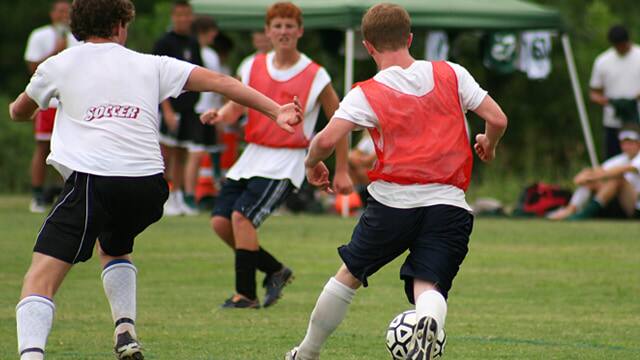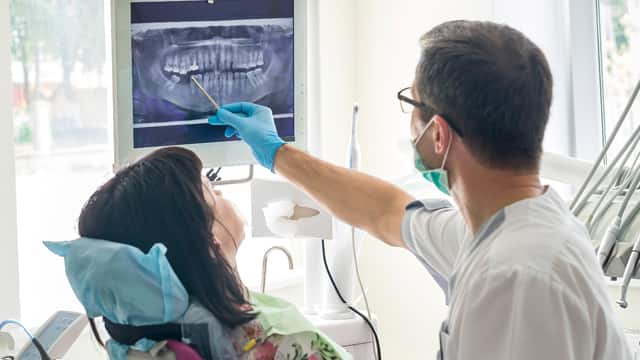What Are Braces Mouthguards?
If the player is wearing braces, an incident may require expensive treatment to repair the braces and fix any damage done to the teeth or gums. Luckily, you can lower the chances of harm or injury by wearing the right mouthguard with braces. Braces mouthguards usually provide a little more room than regular mouthguards, but they offer the same protection level. Their extra width allows you to cover the braces as well as the teeth and gums. However, the mouthguard should still fit comfortably and not impede your breathing.
Types of Braces Mouthguards
There are a few different types of mouthguards available from your orthodontist and some specialty retailers. These include stock mouthguards, boil and bite mouthguard, and custom mouthguards from your dentist or orthodontist.
- Stock Mouthguards. Occasionally, mouthguards will come in a set shape, also known as stock mouthguards, meaning that there will be minimal to no adjustment possible in the piece's shape according to your jaw. A stock mouthguard is the least expensive, but these rarely fit perfectly, providing minimal protection to teeth and braces as a result. While these may be suitable for some athletes, these are not the best choice if you are specifically looking for a mouthpiece for braces.
- Boil and Bite Mouthguards. Boil-and-bite mouthguards are more expensive than stock mouthguards, but they can be heated and remolded several times as braces cause the teeth to change position. Materials like medical-grade silicone allow the boil and bite mouthguard to adjust to your jaw's shape and accommodate some of the changes that occur while wearing braces.
Custom Mouthguards by Your Dentist/Orthodontist. At the dentist's office, the dentist will take an impression of your teeth, and a dental laboratory will create a well-fitted mouthguard. The dentist will place the mouthguard on your teeth to ensure that it fits your bite well. Mouthguards molded by dentists can be expensive, especially given that the reason you or your child has braces is to move teeth around.
Before deciding which type of braces mouthguard is best for you or your child, check with the coach, instructor, or league of each sport you or your child plays to determine if a double mouthguard (covers top and bottom teeth) is required. Some sports like wrestling require a mouthguard covering both the top and bottom teeth if there are braces on both. Most mouthguards only fit over the upper arch, though the coach can also tell you if the sport requires a mouthguard for the lower arch as well.
How to Fit a Mouthguard With Braces
It is imperative to select a mouthguard that is the correct fit; otherwise, it can be impractical and counterproductive in protecting your mouth. Suppose your mouthpiece for braces, for instance, is slightly larger than your mouth. In that case, you risk additional damage to your mouth if the mouthpiece comes off, your tongue instinctively moves to push it back, and your teeth clench down from impact during physical activity. If the mouthpiece is too small or no longer fits your bite, it can cause discomfort and stop your braces from doing their job.
Caring for Mouthguards
Remember that bacterial plaque can gradually accumulate in used mouthguards, so it's essential to clean them after taking them out. Brushing with a toothbrush and toothpaste cleans mouthguards effectively, or you can rinse them with an anti-microbial solution after use.
Popping in a mouthguard before playing sports is the most effective way of protecting braces while enjoying healthy exercise. Choosing the best from the range of options available ensures peace of mind, protection for your teeth and braces, and a healthy smile.
Oral Care Center articles are reviewed by an oral health medical professional. This information is for educational purposes only. This content is not intended to be a substitute for professional medical advice, diagnosis or treatment. Always seek the advice of your dentist, physician or other qualified healthcare provider.
ORAL HEALTH QUIZ
What's behind your smile?
Take our Oral Health assessment to get the most from your oral care routine
ORAL HEALTH QUIZ
What's behind your smile?
Take our Oral Health assessment to get the most from your oral care routine






.png)








